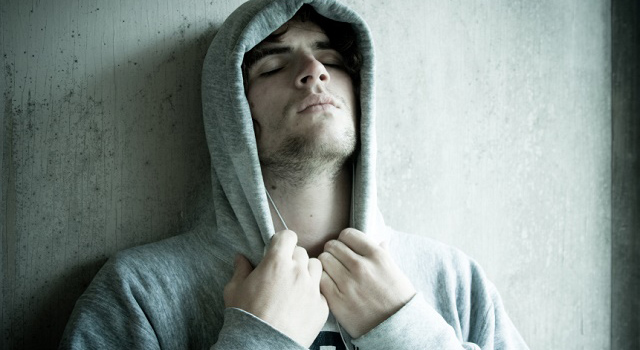If you or someone you love is addicted to opiates such as heroin and morphine or synthetic opioids such as Oxycontin, the one thing that strikes fear in every addict is the withdrawal process. Opiates are among the most powerful and addicting substances in the world, and those who quit using these drugs can experience intense discomfort and pain to a degree where they start using again. While the process of opiate withdrawal can be frightening, knowing what to expect–and seeking the professional help through medical detoxification–will make the process of opiate withdrawal much more tolerable and comfortable.
If you are addicted to heroin and need a quality opiate detox program that is effective, proven to work and safe, call the detox professionals at SoCal Detox today.
What is Opiate Withdrawal Like?
The process of opiate withdrawal can be seen as occurring in three distinct stages.
The first stage of opiate withdrawal is commonly known as the acute withdrawal stage, and addicts can begin to experience symptoms 12 hours after your last use. Some of the most common symptoms associated with this first stage of opiate withdrawal include the onset of depression, disruption of sleeping patterns and insomnia, nausea and vomiting. During this acute stage of withdrawal people can also experience abdominal cramping and diarrhea. After the onset of these symptoms, they can last for approximately 5 days with its’ peak at around day 3.
Once addicts get past the acute stage of opiate withdrawal, they will enter a second phase that will last approximately two weeks or so. During this phase the body is hard at work in ridding itself of the toxins that have accumulated as the result of opiate abuse. Additionally, the brain is also hard at work in trying to replenish and rebalance endorphin levels. The common symptoms seen in this phase of withdrawal includes goosebumps, chills, leg cramps and dilated pupils.
When a newly recovering addict enters the third stage of opiate withdrawal is the longest stage with its duration lasting anywhere between one to two months. While the physical withdrawal symptoms experienced in this stage are much less severe, the psychological symptoms of opiate withdrawals are more pronounced. These symptoms include intense anxiety, restlessness and insomnia.
The Importance of Medical Detoxification
Despite the pain and discomfort that can be felt during the withdrawal process, there are those who may feel they can detox from opiates on their own either through using over-the-counter remedies or by quitting opiates altogether (commonly known as going cold turkey). While these methods of self-detoxification can be very appealing, they also carry significant risks to one’s health. Depending on the amount of opiates that are taken, the length of time they are taken and their frequency and the presence of any underlying medical conditions, the withdrawal symptoms a person can experience has the potential to become life-threatening.
When an addict undergoes a professional and proper medical detox at a reputable detox facility, experienced staff can provide the essential medical and mental health care in an environment which is safe, supportive and secure. Detox staff strives to achieve three main objectives during the detox process.
The first objective of medical detox is to complete a complete evaluation in which they test for both the amount and concentrations of substances in your bloodstream. This evaluation process also is a great tool to diagnose any co-occurring mental disorders such as depression, anxiety or PTSD. Oftentimes these underlying psychological issues lie at the root of one’s substance abuse issues. In the event that a co-occurring disorder is found, detox staff can work with drug treatment staff is creating an individualized plan of recovery that will include essential mental health services.
The second objective of opiate detox is to get the client to a point where they are both medically and psychologically stable as well as substance free. This can be accomplished by using medications such as Suboxone in a highly controlled and supervised environment. These medications allow opiates and other toxins to be gradually be removed from the body so that clients can regain their physical health and mental vitality. Once that has been achieved, detox staff can prepare clients for entry into an intensive and highly structured inpatient drug treatment program.
Do You Seek To Break the Cycle of Opiate Addiction Once and For All?
If you are addicted to opiates, medical detoxification is the first and most important step you take in your recovery journey. While the detox process may seem overwhelming, the detox professionals at SoCal Detox have the detox programs, experience and compassionate that will help provide the necessary foundation for a meaningful recovery. SoCal Detox is one of the premier drug detox facilities in southern California, and our programs are proven to work and can be individually tailored to meet your specific needs. Call us today!







